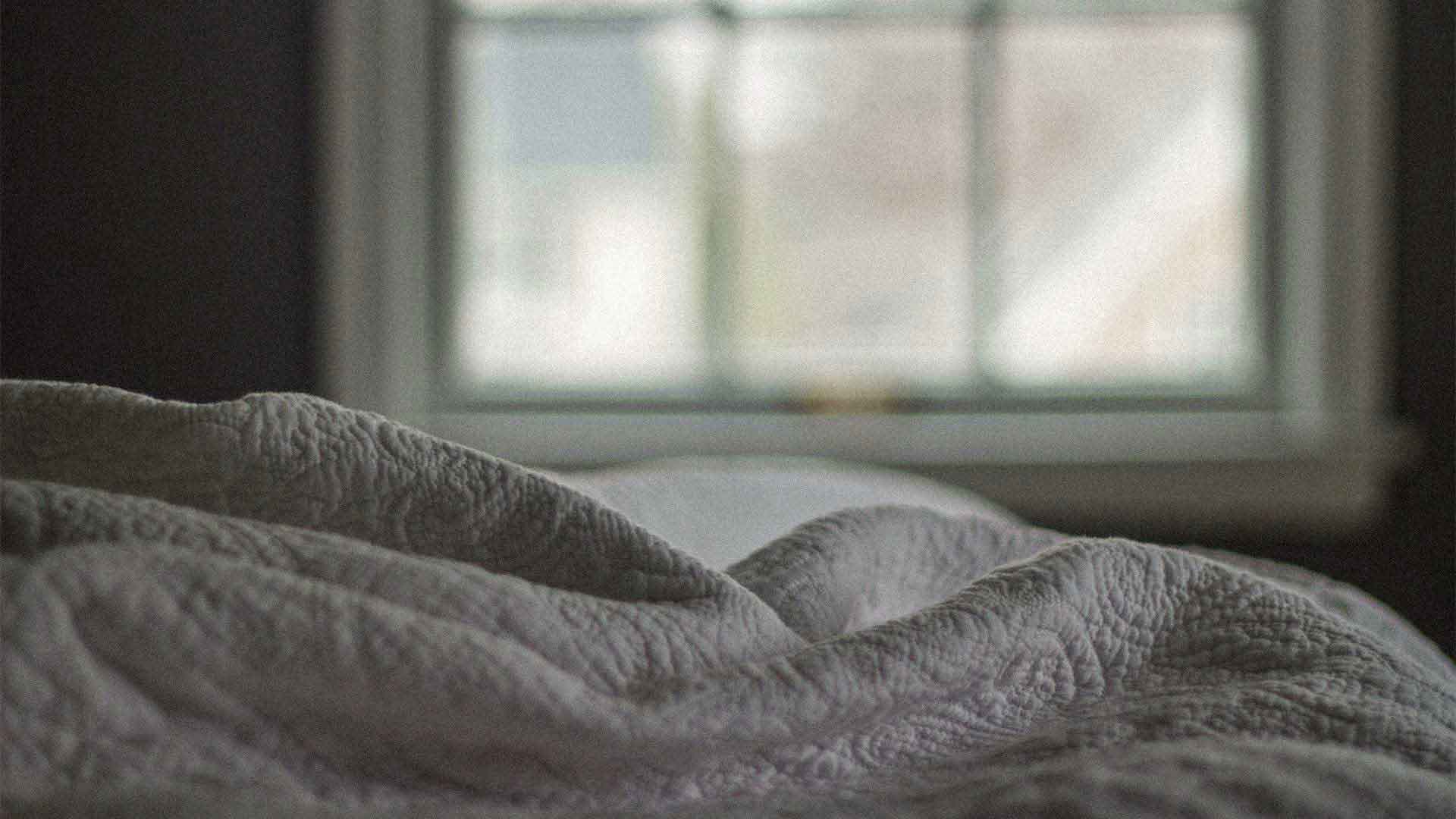We’ve all been there: The bright light that peeks through the gap in your curtains and keeps you from falling asleep. Or the hot summer night that makes it impossible to get comfortable, no matter how much you toss and turn.
When it comes to sleep, we talk a lot about when— when to go to bed, when to set your alarm, when to get up in the morning—but where you do it can also have a major impact. Here are 5 simple ways to optimize your bedroom for sleep. A few small changes can make a world of difference.
1. Embrace the darkness
Your body has a natural sleep-wake cycle that’s triggered by light. When the lights are dim, your body produces melatonin, your sleep hormone. This slows your system and signals to your brain that it’s time to shut down for the night. The darker your room is, the clearer that signal becomes, making it easier for your mind and body to wind down, and stay that way for the night. It also eliminates visual distractions, like that pesky streetlight.
Consider getting blackout curtains or blinds to block out external light—or try using a sleep mask. Also, avoid using your phone in bed; the screen’s blue light can inhibit melatonin production and make it harder to drift off.
2. Shhhhhh. Make your bedroom quiet
We all know loud or sudden noises can put an end to a good snooze. But even relatively low-level sounds like traffic or electronic devices can be a problem. These faint distractions can keep your mind active as you try to fall asleep. Later in the night, they can trigger micro-arousals, short periods of wakefulness that disrupt your sleep cycle. You might not remember these interruptions, but they can leave you feeling groggy or unrested when you wake up.
To mitigate the negative effects, try using a sound machine or even a fan that masks smaller noises with a soothing ambient sound.
3. Ahhhh. Make your bed comfy
Put simply, you need to be comfortable to sleep well. So it’s a good idea to put a little time into making your bed into a sleep haven with soft sheets, fluffed pillows and a mattress that provides support.
If your mattress is old or too firm or soft for your liking, it’s worth investing in a new one. Over time, mattresses can lose their resilience and become less supportive. This not only makes it harder to fall asleep at night, but it can also leave you with aches and pains in the morning.
4. Go analogue
If you like to scroll through your social feeds at night or check emails first thing in the morning, you’re certainly not alone. But while it’s a habit many of us fall into, it’s also one that can damage sleep.
Not only does the blue light affect your melatonin production, but engaging with these activities right before bed can stimulate your brain, making it harder to unwind and relax.
Plus, all the notifications, alerts and texts can interrupt your sleep – even if just for a moment. Instead, aim to stay off your phone at least an hour before bed. If you can, keep your phone in a different room too.
5. Keep it cool
Ever notice how a cool room has a calming effect? This is because your body has an intricate regulating system that plays a vital role in your sleep-wake cycle—and it’s affected by ambient temperature.
In the evening, your body temperature drops, cueing your systems to get ready for sleep. Setting your room to a slightly cooler temperature encourages that natural dip, helping to relax your muscles and induce drowsiness.
By extension, a warmer room might get in the way of this process, leaving you feeling hot and tossing and turning throughout the night.
Try setting your room to a comfortably cool temp that feels right for you, and use bedding that’s breathable to allow better airflow and heat dissipation.
Check out next: 6 of the worse foods for sleep
About Gabby
Gabby is a Nutritionist with a master’s degree in strategic communications. She loves using her nutrition-fluency with storytelling to encourage positive change. Before Persona, she worked at a mental health clinic helping clients manage stress, anxiety and other mental health issues through diet.
Gabby is just one of the many experts at Persona who are here to accelerate your wellness journey. If you have questions about nutrition or your personalized program, reach out now or book a free appointment with Gabby or another of our amazing nutritionists.
*These statements have not been evaluated by the Food and Drug Administration. This product is not intended to diagnose, treat, cure, or prevent any disease.
This information is not intended as a substitute for the advice provided by your physician or other healthcare professional, or any information contained on or in any product label or packaging. Do not use the information from this article for diagnosing or treating a health problem or disease, or prescribing medication or other treatment. Always speak with your physician or other healthcare professional before taking any medication or nutritional, herbal, or homeopathic supplement, or using any treatment for a health problem. If you have or suspect that you have a medical problem, contact your health care provider promptly. Do not disregard professional medical advice or delay in seeking professional advice because of something you have read in this article.

